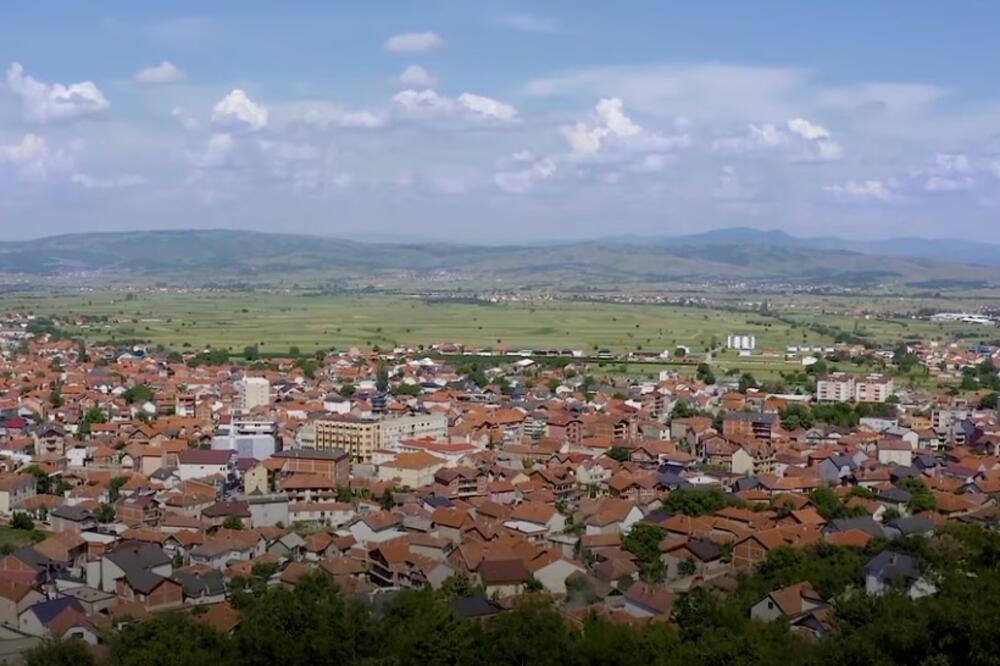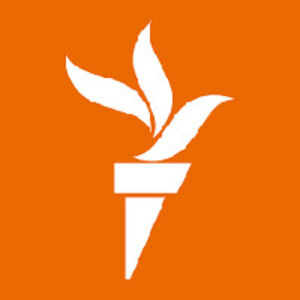A political crisis broke out again in a municipality in the south of Serbia with an Albanian majority.
Until the local elections, Presevo will be managed by the Provisional Authority appointed by the Government of Serbia, after it dissolved the local assembly.
With the dissolution of the assembly, the mandate of the president of the municipality and other members of the local government also ended.
The recent president of the municipality of Preševo, Šćiprim Arifi, accused the authorities in Belgrade of "forcible" dismissal and discrimination against Albanians.
"The manner in which the Provisional Authority was elected is completely illegal and unconstitutional," stated the written response of Šćiprim Arifi's cabinet to Radio Free Europe (RSE).
The Alternative for Changes party, from which Arifi comes, was the most numerous in the local parliament of Preševo, which has a total of 38 members.
On the other hand, Ragmi Mustafa, who was appointed by the Government of Serbia as the president of the Provisional Authority, says that the local assembly has not met since July 2023 and that this was the reason for its dissolution.
"The previous coalition gathered around Šćiprim Arifi's Alternative for Change lost its majority in the Assembly and for nine months they could not convene a single session," Ragmi Mustafa told RSE.
He is the leader of the Democratic Party of Albanians (DPA), which was the second largest in the local parliament.
This is the third time that the Government of Serbia has appointed a Provisional Authority to manage Presevo in the past seven years.
In the same period, this will be the fourth local election.
Voting should take place on June 2, when, in addition to Belgrade, citizens should go to the polls in more than 80 cities and municipalities.
The municipality of Preševo has over 33.000 inhabitants and half of the 61 Albanians registered in the last census in Serbia live in it.
They are also represented in Bujanovac and Medveđa, two municipalities in the south that are part of the so-called Preševo Valley.
In recent years, Šćiprim Arifi's Alternative for Change and Šaip Kamberi's Party for Democratic Action, currently the only Albanian representative in the republican parliament, have been in power in Preševo.
What did the Government of Serbia decide?
In the decision on the dissolution of the assembly of Preševo, adopted on April 18, the Government of Serbia referred to an article of the Law on Local Self-Government, which states that the local parliament can be dissolved if it does not sit for more than three months.
Five members of the Provisional Body were appointed by the Government's decision, and the law mandates that the representatives of the parties represented in the dissolved assembly be elected "taking into account the political and national composition".
In addition to President Ragmi Mustafa, that body also includes Tefik Bajrami from the DPA, the president of the Movement for Reforms Sami Saljihu, Škembim Velija from the PDD and Branko Trajković from the Serbian Progressive Party (SNS).
In the dissolved assembly of Preševo, 36 councilors had Albanian parties, and two were from the coalition led by the Serbian Progressive Party.
The cabinet of former municipal president Šćiprim Arifi accused councilors from the list of progressives of not appearing at the last scheduled session of the assembly in October "without any announcement or explanation", after which Alternative for Change lost its majority.
Branko Trajković from SNS was not available for a comment to RSE until the publication of the text - why they withheld support from the previous government in Preševo.
Ragmi Mustafa points out that the question for official Belgrade is why the Provisional Authority was not formed earlier.
"We could not influence more than to indicate to the embassies and the minister of state administration and local self-government that it is necessary to call for elections and dissolve the assembly," he adds.
Why is the Assembly dissolved now?
How they respond to Šćiprim Arifi's accusations of "illegal and violent removal" from the head of Preševo and discrimination against Albanians - the Government of Serbia, the Ministry of State Administration and Local Self-Government and the Coordinating Body for Preševo, Bujanovac and Medveđa did not respond to RSE until the publication of the text.
The question of why the formation of the Provisional Authority was waited for is also unanswered.
"It would be difficult to say that that municipality is out of Belgrade's sight, if there is already a governmental Coordination Body for Preševo, Bujanovac and Medveđa. That body first had to raise the alarm that things are not right and that the government is not functioning," Aleksandar Popov from of the non-governmental Center for Regionalism.
The coordinating body for Preševo, Bujanovac and Medveđa was founded more than 20 years ago, after the conflict between the police and the army with the so-called Liberation Army of Preševo, Medveđa and Bujanovac.
Conflicts broke out after the signing of the Kumanovo Agreement in June 1999, which ended the war in Kosovo.
Armed clashes in the south of Serbia lasted until May 2001.
The coordinating body was supposed to help calm inter-ethnic tensions and normalize life in the Preševo Valley.
The founding act foresees that the state focuses on accelerated economic empowerment and political and social integration in the three municipalities.
Disagreements among Albanian parties
In addition to the authorities in Belgrade, Šćiprim Arifi also blamed certain Albanian political representatives in the Presevo Valley for his dismissal.
In a post on Facebook dated April 20, he accused them of becoming "an easy tool for (Serbian President Aleksandar) Vučić to implement his anti-Albanian agenda."
Ragmi Mustafa calls Arifi's accusations against Albanian political representatives "demagogy and fabrications".
"When he is appointed by the authorities in Belgrade, it is quite normal, and when he is not appointed, he makes accusations and absolutely low blows against other politicians," said Mustafa.
The Government of Serbia appointed the Provisional Authority in Preševo in 2017 and 2020, and then Šćiprim Arifi was appointed as its head.
The parties that make up the local assembly have the right to propose their candidates for the Provisional Authority to the Government.
Arifi's Alternative for Change, as stated in the answer to RSE, refused this time.
"Because nothing was going through official channels, the names (of candidates) were requested via Viber and urgently. The competent ministry did not participate at all, unlike last time when they addressed in writing and gave a legal deadline for each party to propose a name for the Provisional Authority ", they add.
Due to disagreements between Albanian political parties, the local government in Preševo has been unstable for several years, reminds Aleksandar Popov from the non-governmental Center for Regionalism.
"The conflict between Šćiprim Arifi and other Albanian politicians has been going on for some time. Arifi was considered a politician who has good relations with Belgrade. Obviously, now there has been a reversal," he added.
He also points out that Belgrade's "old policy" is to create discord among the political representatives of one community.
"I would not be surprised if there were those games, to introduce a grain of discord among the political representatives of the Albanians, to worsen the situation in that local self-government (Preševo), if there is no harmony and joint performance of the representatives of the Albanians in the south," added Popov.
"Threats of Vučić"
Šćiprim Arifi said in a post on Facebook on April 20 that his dismissal came after "Vučić's last public threat".
On April 14, the President of Serbia announced that everyone who violates the constitutional order of the country will be "prosecuted, arrested and prosecuted."
"All of you who trample on the constitutional order of Serbia, all of you who participate in it in any way, through protests, demonstrations, in any way - you will answer for it, all Albanians who participate in it will answer for it," said Vučić.
Three days later, on April 17, Deputy Director of the Kosovo Police Dejan Janković and four Kosovo police officers were detained at the border crossings with Serbia.
The Serbian police announced that they were taken into custody for "security checks".
Janković was ordered to be detained for up to 48 hours, and Kosovo's Interior Minister Dželjalj Svečlja said that Janković was in custody under "accusations of subverting the constitutional order of Serbia."
On April 17, according to the Kosovo authorities, Serbia detained over 20 Kosovo citizens at border crossings for more than 1.400 hours.
The Government of Kosovo described these actions as Serbia's revenge for the support that the Parliamentary Assembly of the Council of Europe gave for Kosovo's membership in this organization.
Serbia denied those allegations, saying that the delays at the borders were caused by additional security measures and that the movement of Kosovo citizens "is not restricted."
The European Union and the US State Department reacted to the arrests.
The State Department called on Serbia to refrain from unilateral and uncoordinated actions, and to fully respect the agreements reached within the EU-mediated dialogue.
Punishment for displaying the Albanian flag
Šćiprim Arifi linked his dismissal to the decision of the court in Vranje, which ordered him and the Alternative for Changes party to pay a fine of 470 euros for placing the Albanian flag on the party's premises in Bujanovac on November 27, 2022, the day before the anniversary of Albania's independence.
The decision stated that he and his party were found guilty because on November 27, 2022, they "raised the flag of a foreign country, Albania, and did not raise the flag of Serbia."
With this, the court stated, Arifi and his party violated the law that regulates the use of the flag and other national symbols of Serbia.
The Government of Serbia did not even respond to RSE's questions about the accusations made by Arifi.
It is not the first time that political representatives of Albanians have been punished for displaying the Albanian flag.
"Nebriga Belgrade"
The Serbian authorities signed three agreements for the integration of the Albanians of the Preševo Valley into the state institutions of Serbia in 2001, 2009 and 2013.
They mainly related to the exercise of collective rights and continued integration into institutions such as the police, judiciary and education.
However, Albanians from the south often accused official Belgrade of violating their rights - for example, for the lack of textbooks in the Albanian language or for the passivation of addresses, that is, the deletion of citizens from the address where they were registered.
"There has long been dissatisfaction with the attitude of the authorities in Belgrade towards the Albanians, that there is indifference, that development is not taken into account," he adds.
In the republican elections in December 2023, Albanians appeared in two columns.
Šaip Kamberi's Party for Democratic Action passed the census and won one mandate, while the list led by Šćiprim Arifi was left without a representative in the Serbian Parliament.
No national minority is guaranteed a parliamentary seat, but they have a lower percentage threshold in the elections, which allows them to enter parliament more easily.
According to census data, Albanians are the fourth most protected national minority in Serbia.
Bonus video:





